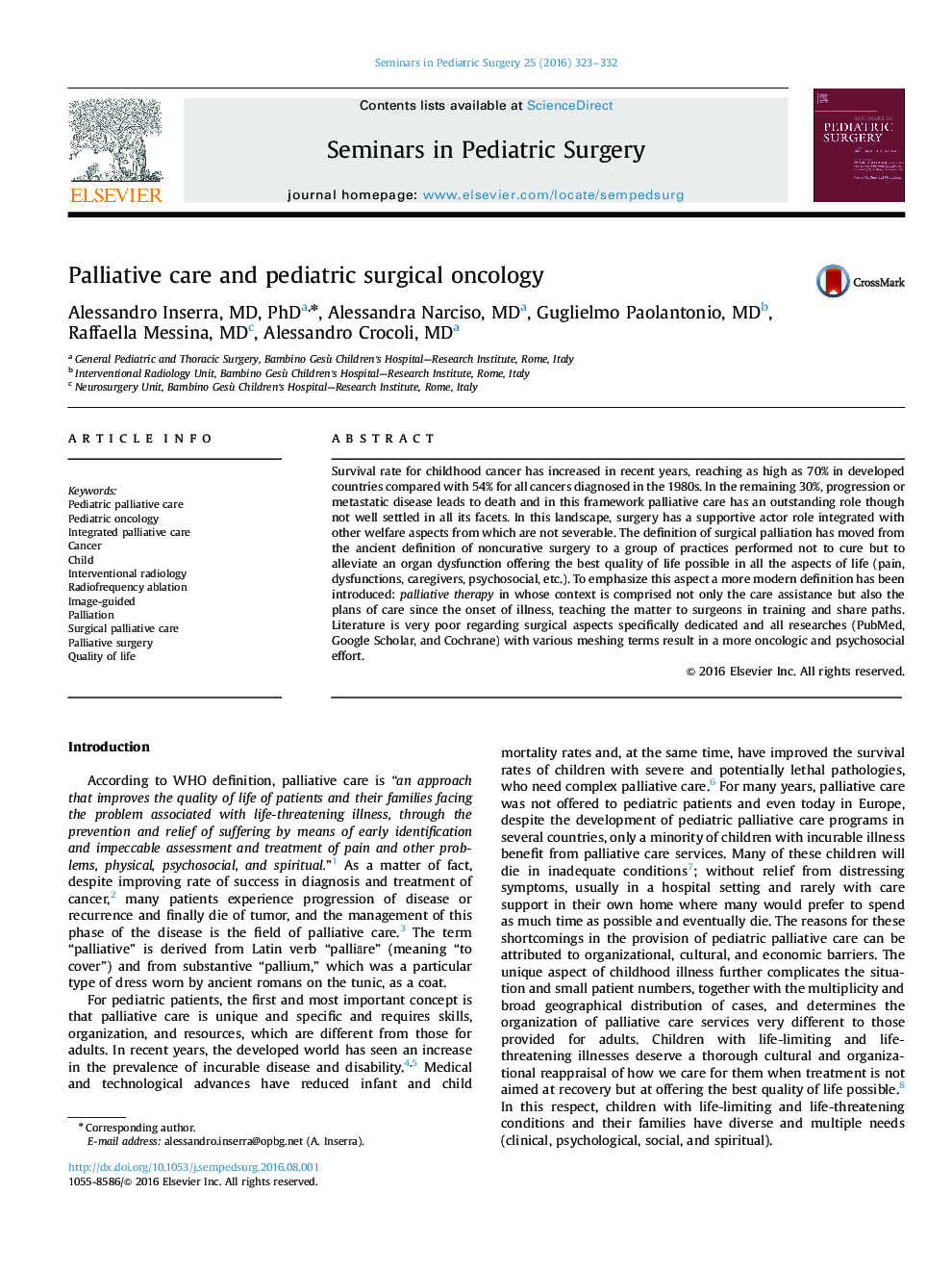| Article ID | Journal | Published Year | Pages | File Type |
|---|---|---|---|---|
| 5720330 | Seminars in Pediatric Surgery | 2016 | 10 Pages |
Survival rate for childhood cancer has increased in recent years, reaching as high as 70% in developed countries compared with 54% for all cancers diagnosed in the 1980s. In the remaining 30%, progression or metastatic disease leads to death and in this framework palliative care has an outstanding role though not well settled in all its facets. In this landscape, surgery has a supportive actor role integrated with other welfare aspects from which are not severable. The definition of surgical palliation has moved from the ancient definition of noncurative surgery to a group of practices performed not to cure but to alleviate an organ dysfunction offering the best quality of life possible in all the aspects of life (pain, dysfunctions, caregivers, psychosocial, etc.). To emphasize this aspect a more modern definition has been introduced: palliative therapy in whose context is comprised not only the care assistance but also the plans of care since the onset of illness, teaching the matter to surgeons in training and share paths. Literature is very poor regarding surgical aspects specifically dedicated and all researches (PubMed, Google Scholar, and Cochrane) with various meshing terms result in a more oncologic and psychosocial effort.
